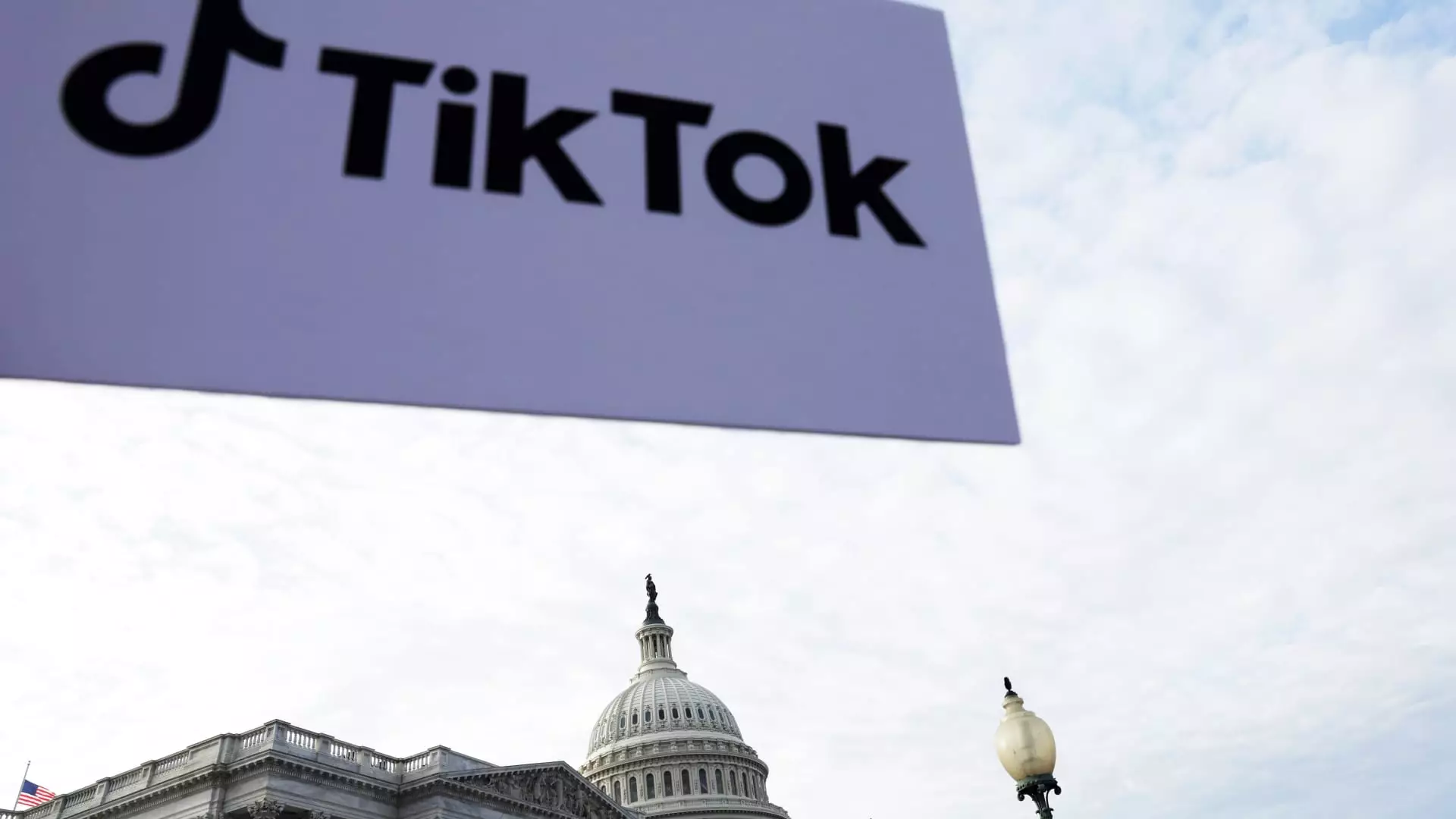As tensions between the United States and China continue to escalate, the future of social media giant TikTok remains precarious. Recent developments from the U.S. House Committee have compelled both Apple and Google to prepare for a scenario where TikTok could potentially be banned in the U.S. as early as next month. Such a drastic move stems from a federal court ruling that requires the Chinese company ByteDance to divest its ownership of TikTok. This new wave of legislation not only reflects geopolitical anxieties but also raises critical questions about the responsibilities of technology companies operating in the app ecosystem.
The Select Committee on the Chinese Communist Party, spearheaded by Representatives John Moolenaar and Raja Krishnamoorthi, has taken definitive action by sending formal letters to CEOs Tim Cook and Sundar Pichai. These letters serve as a reminder of the legal obligations resting on these corporate leaders, emphasizing that Apple and Google will be legally barred from providing services to support TikTok in the U.S. unless its ownership changes hands by January 19.
At the heart of this controversy lies a tug-of-war between national security interests and the First Amendment rights of TikTok’s substantial user base. With approximately 170 million users in the U.S., TikTok has argued that enforcing a ban on the app violates constitutional provisions, framing the issue as one that pits free expression against national security. Critics of the ban contend that such moves are not only unconstitutional but also detrimental to a multitude of American small businesses and content creators who depend on the platform. A report estimates potential losses around $1.3 billion in earnings should the app be banned for even one month.
Despite these arguments, a three-judge panel of the U.S. Court of Appeals dismissed TikTok’s claims regarding the law’s unconstitutionality, asserting that the legislation is “narrowly tailored” to safeguard national security. This ruling unexpectedly shifts the balance of power towards the state, highlighting an increasing willingness among lawmakers to prioritize security over free speech in a digital age.
For Apple and Google, the impending legislative requirements could significantly reshape their operational strategies within the increasingly fraught geopolitical landscape. The lawmakers’ correspondence underscores the seriousness of the situation and the potential repercussions for the app ecosystem. If TikTok fails to divest, these tech giants will face legal repercussions that could restrict their ability to maintain popular applications.
The reality that top-tier social media platforms may have to comply with governmental mandates poses substantial dilemmas. Would they be willing to forgo the revenue generated from hosting such applications, or will they advocate for alternative solutions to avoid alienating a vast user base? These are pressing questions that executives must navigate in the coming weeks.
Interestingly, the political landscape around TikTok is further complicated by financial relationships that exist within it. Following an unexpected shift in his stance toward TikTok, President-elect Donald Trump has yet to comment on possible enforcement actions following his inauguration. His wavering commitment could be influenced by encounters with powerful financiers, including Jeff Yass, who has significant stakes in both TikTok and the parent company of Trump’s Truth Social platform.
Such intertwining of investment and policy highlights the complex and often opaque relationships that dictate technology and social media governance. Lobbying, investments, and social perception all play crucial roles in shaping the trajectory of tech regulation in the U.S.
As the clock ticks down to the looming deadline, the prospect of a TikTok ban lays bare the intricate web of national security, corporate responsibility, and personal freedoms. While the legislators assert the importance of ensuring that foreign adversaries do not command control over platforms used by American citizens, the larger implications of such a ban should not be overlooked.
If TikTok’s fate ultimately rests on governmental decisions, it could set a precedent for how social media platforms are regulated in the future. The ramifications could extend beyond a single app, influencing the broader digital landscape and the ways in which technology connects users globally. The unfolding saga of TikTok hence not only invites scrutiny of its own ecosystem but also challenges the very principles of open communication and freedom that have long defined the Internet.
As key stakeholders prepare for a tumultuous month ahead, one thing remains clear: the intersection of technology, policy, and personal rights will only become more complex in a world where apps are as integral to daily life as the infrastructure that supports them.

